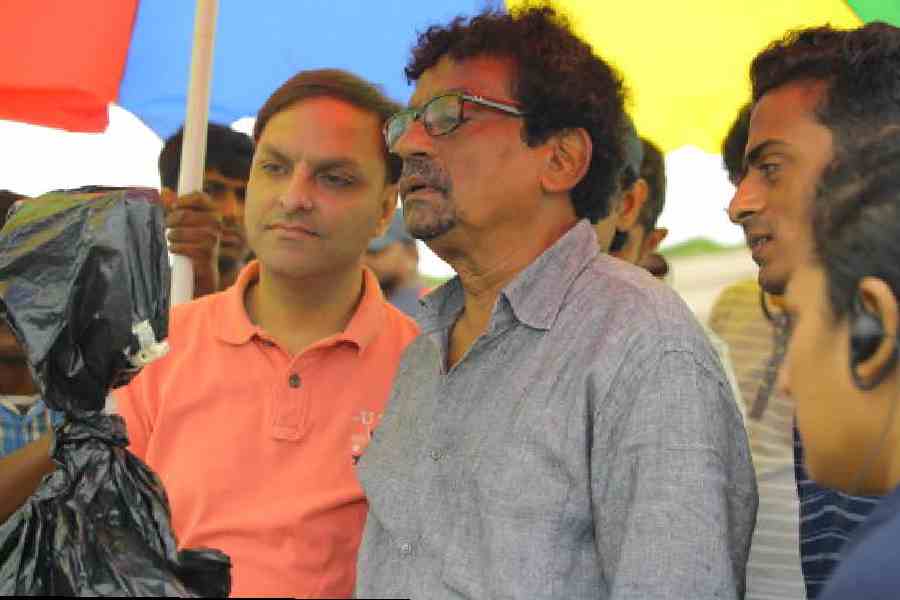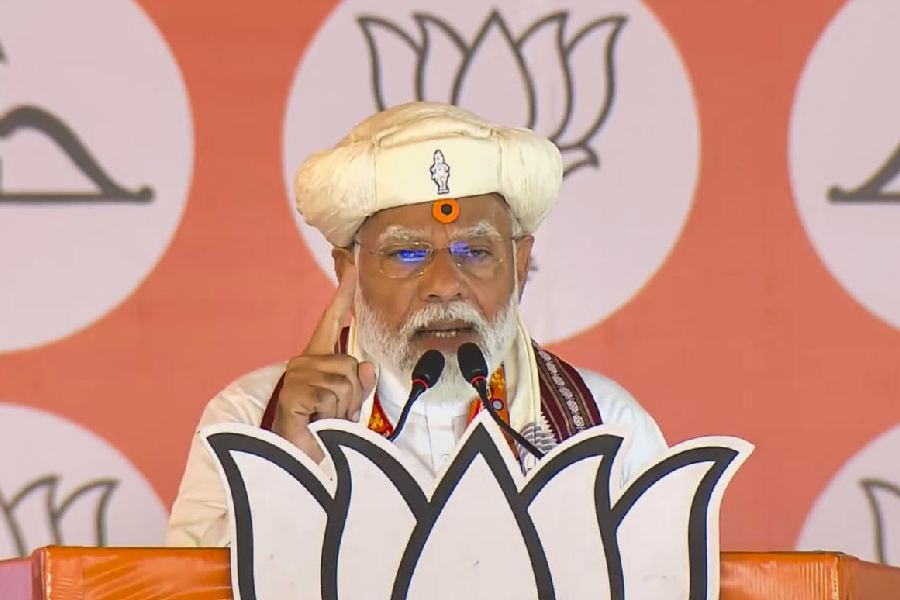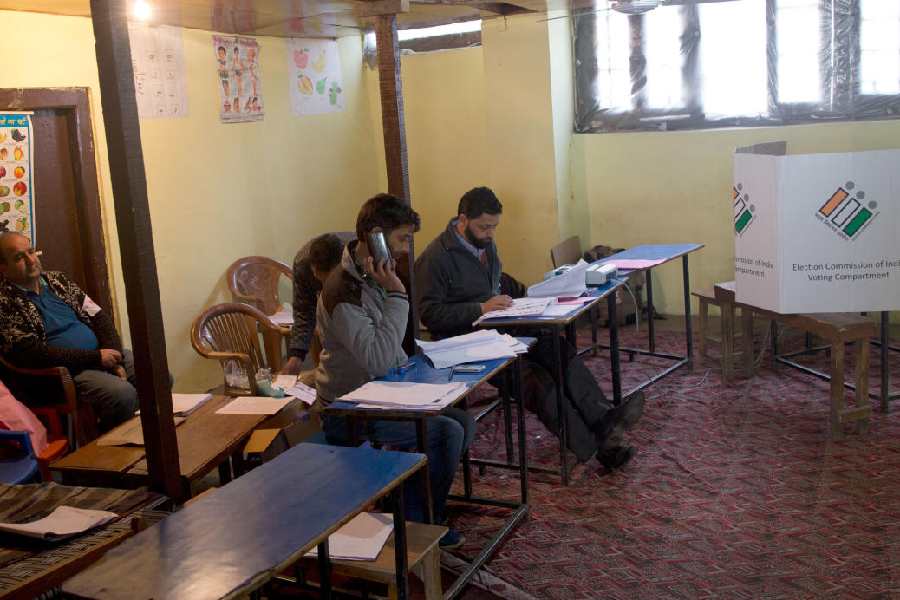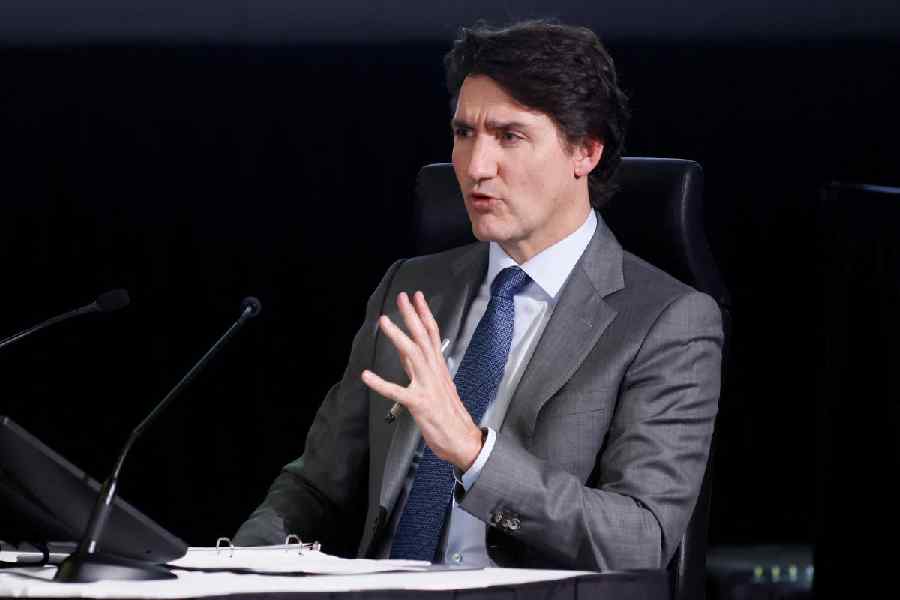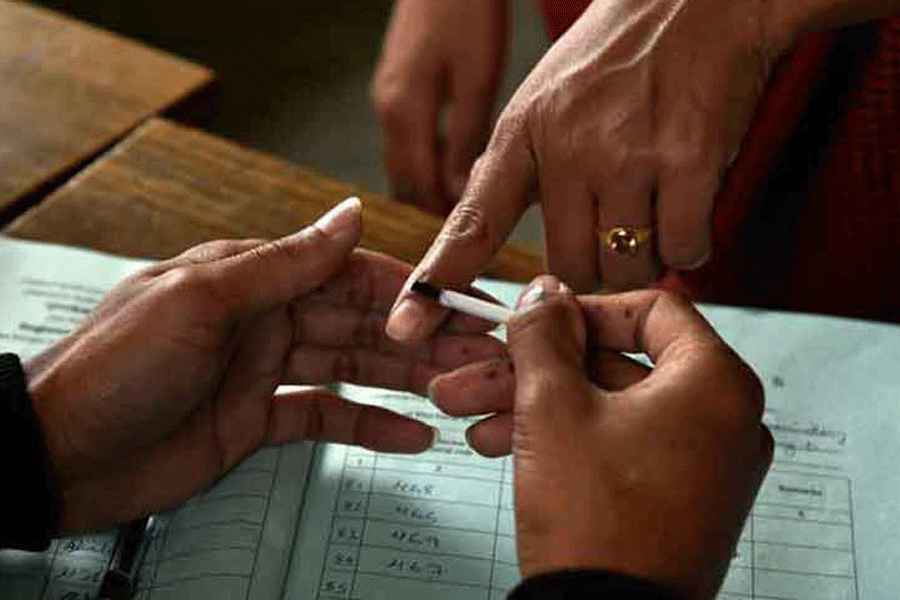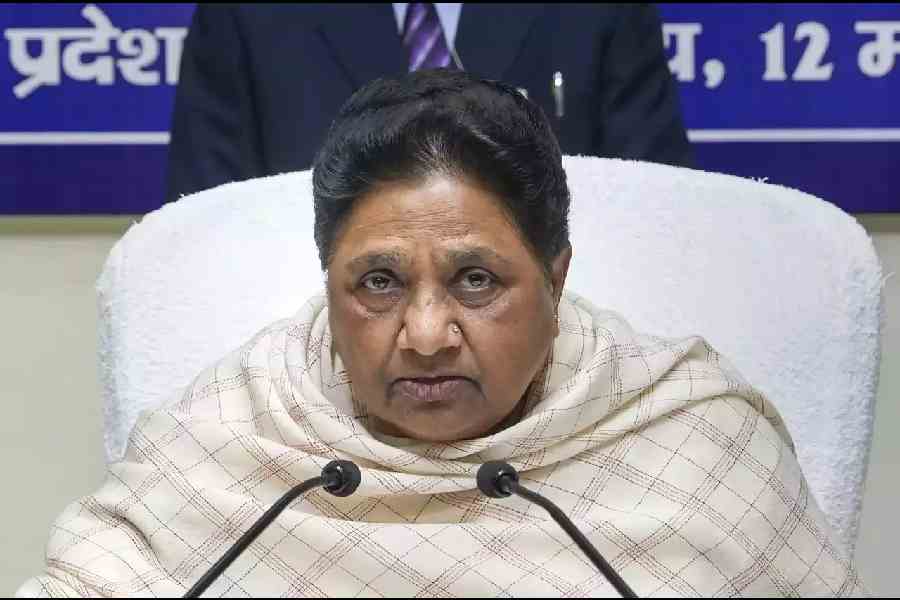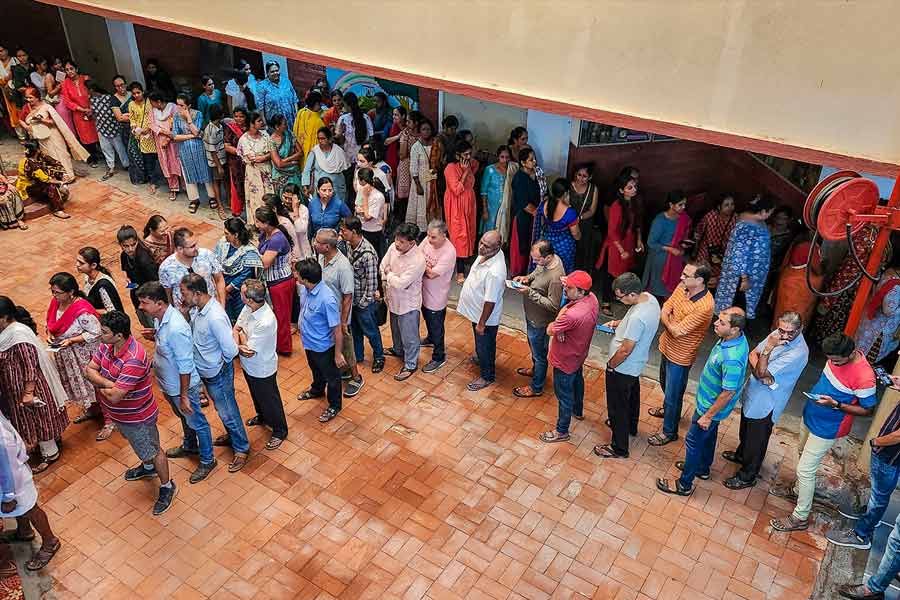Amit Agarwal is making a comeback in the Bengali film industry this year as a presenter of Raajhorshee De’s upcoming film Sada Ronger Prithibi and as one of the producers and presenter of Ashoke Viswanathan’s Hemanter Aparanha. Starting his career as a technical director and editor in 1998, Amit produced his first film in 2012. His debut film in Bengal was Astra, after which he worked for many years in Mumbai, associating himself with significant projects. This year, he is also planning to debut as a director with his first animation film. Films are Amit’s passion, and wearing different hats in this field is a process through which he wants to hone the craft completely. With many films to look forward to this year, in different capacities, Amit shares his journey with t2.
You have been working in the Indian film industry for so many years now. How did this journey start?
Right from childhood, I was very creatively inclined. My maternal uncle was a folk and devotional singer and famous music director, Ravindra Jain. I was privileged to attend music shows and studio recordings, and used to spend a lot of time among people from the music industry. Later, during my college days, I developed an interest in animation and audio-visual technology, which eventually showed me the path to my career in advertising and then in film and television editing and production.
Your first Bengali project as a producer was Astra, where you were initially involved as a technical director and editor. How did that happen?
I never thought I would be producing films. I was interested in the technical part of it and became a professional who could contribute technically and creatively. But while working and dealing with people in production, I thought I had an opportunity. When I have the knowledge about everything in production, why not try and attempt and produce a film? And as I was based in Calcutta at that time, Astra happened.
You are coming back to Bengali films after a long time. What’s the reason for this comeback and what are your future plans in this industry?
It was not a deliberate strategy. I had more opportunities in Hindi cinema back then. The market was also not very practical at that time as far as the Bengali box office was concerned. But in my heart, I always wanted to do Bengali films. I was born and brought up here. I will be presenting Sada Ronger Prithibi and I must say that Raajhorshee De is one of the most talented directors in recent times. Over coffee, he narrated the script to me briefly and it left an impact on me as I felt this subject of widow trafficking is so important and untouched. He humbly offered me to present the film and I thought this is how my Bengali film comeback will happen as the film releases this month.
As far as Hemanter Aparanha is concerned, again Ashokeda (Viswanathan) and I know each other for more than a decade as I have worked for him as an editor for his documentaries, corporate films and film promos, and he has acted in my debut Bengali film Astra, too. We both have already worked together and have a good understanding so he offered me to come on board as one of the producers and a presenter. The film is ready for release and is having a festival run at the moment. We received a great response at KIFF (Kolkata International Film Festival).
You launched the first look of M.S. Dhoni — The Untold Story. How did it happen and why did you exit the project?
I am a big fan of cricket and M.S. Dhoni. His talent, struggle, endurance, patience and success were very inspiring for me. In 2015, biopics were getting popular in Hindi cinema. One day in Mumbai while discussing biopics with one of my friends, who is also a producer, the idea of making a film on MSD popped up and that was the day I had made up my mind to approach MSD. Soon I met Arun Pandeyji, a friend of MSD, who is now a good friend and my then partner for the film. He played a major role in convincing MSD. We experimented with the launch of the first look and got an unbelievable response as he is an international sports icon, a living legend and was still playing at that time. Though I had already started another Hindi film project, this was my first Hindi film of such a big scale with such a huge budget. Being a new producer, it was a wise decision for me at that time to exit the project. Discussions with Fox Star were on with my partner and they wanted to take over the film after production, and when it’s a matter of releasing it on a big scale internationally, big studios can do justice. On good terms and amicable, I exited the project. Sometimes you see a dream and share it with someone but when it is fulfilled by someone else, you enjoy the process as you were one of the reasons for it to happen.
Then Simran happened?
Yeah, I produced Simran and it was directed by Hansal Mehta. T-Series was also there. If you start with a big project, you have the opportunity to work on more and more films and everybody comes to know about you. I had goodwill in the market and it was easy for me to get introduced to Simran as a producer.
Tell us something about Raahgir.
Raahgir is a film which is very close to my heart and will always remain so. Working with a stalwart and passionate filmmaker like Goutamda (Goutam Ghose) is a great experience. I have been his fan ever since I watched his film Paar. We were actually planning to do a Bengali film together, but while the discussions were on, one day he offered me Raahgir as it is based on Brishtir Ek Din by Prafulla Roy. He said that he wanted to do Raahgir first as the film had to be shot in monsoon and monsoon was just two months away. It’s a story about humanity and sacrifice which is so relevant in today’s world as we have become so selfish and we need to realise what humanity is all about.
Raahgir was made during Covid times and thereafter the market dynamics changed drastically, which made things difficult for independent producers like me, but I am a very positive person and I can assure you that there’s something good in store for Raahgir. Post-Covid we had a successful festival run, which is still on.
You are also directing an animation film called Ajooba...
Animation was my point of interest from the very beginning of my learning and my career but I chose to concentrate more on the technical aspect in the initial period of my career because I was more strong in it and had to prove myself first. Eventually, when I started working as an editor and as a technical director, I used to very frequently get animation projects and used to enjoy working on them. I remember taking a challenge for a project on Doordarshan titled Nidhiram, which was a combination of live-action and 2D animation. As an animation supervisor, I executed the animation part with my team successfully. I am not an animator. While working as a professional, I used to take out time and develop my animation ideas and have to date developed many IPs and ideas which I wish to create someday and Ajooba is one of them. Ajooba is in the VFX stage at the moment and we are planning a 2024 Children’s Day release. After Ajooba, I am hoping to develop my other ideas too as an animation director.
You have produced many of your Hindi films from Calcutta. Did you have to face any challenges?
Challenges in filmmaking will never get over as long as one is in this profession. Filmmaking is a process driven by the subject and the director’s vision so it doesn’t matter where one is based. I have been working both in Calcutta and Mumbai. I edited my home production of the Bengali film Astra and was the technical director of the Bengali film Trishna (2007), which I think was the first Bengali film on a big scale in digital format. Then it was a very challenging job, but I took the challenge and executed it successfully. I remember convincing the director, Pritam Jalan, to shoot the film in Varicam (digital camera) and also assured him about the best quality in digital output and in reverse telecine (process to again convert the digital data to negative) because at that time theatres were not equipped with digital projection and one had to convert it back to negative/positive to project it in the theatres. I also brought the first Da Vinci DI (colour grading) set up in Bengal. I find producing a film is an art. It is an adventure for me and taking challenges is part of filmmaking.
You said that producing a film is an art for you. How important is the commercial aspect for you compared to the content as a producer?
Filmmaking is an art that you have to monetise to survive so that you can keep on contributing. To be a serious producer, you have to understand your director. You don’t need to be an expert but you should be aware of the technical and creative process behind filmmaking, which is valid for any business.
So, I think one has to understand the art of filmmaking and at the same time the art of selling the art. Making a strategy to get the money back is important. No matter how big a director is, no one can guarantee returns in this industry. If they don’t get back the money it is not that the film was bad. A bad film can be a big hit and a good film may not work. We have to make a commercially viable strategy but have to keep changing the strategy according to circumstances to survive. The best part is that nowadays there’s immense scope to monetise all kinds of films.
What kind of films would you like to be associated with in future?
The subject should be unique. I think being a producer, it is also our responsibility to support good content. Content is a challenge nowadays. When I sit with my friends from the Bengali industry, we discuss how content is being repeated on OTT. We should explore literary works more I feel. We have an audience for that.

